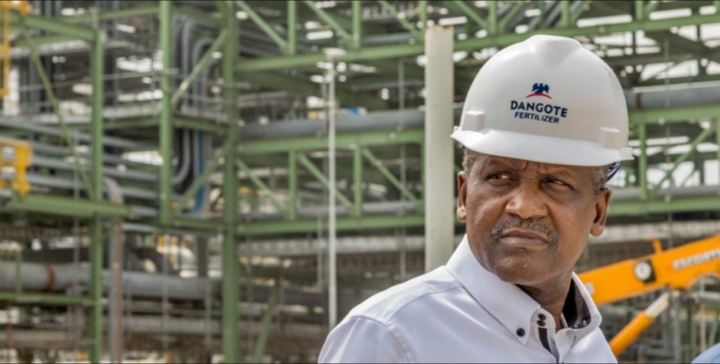Lagos Business School (LBS), one of Africa’s premier institutions for executive education, has led a high-level delegation of African chief executive officers and industry leaders on a strategic visit to the newly operational Dangote Refinery in Ibeju-Lekki, Lagos. The visit, which took place earlier this week, was part of the school’s ongoing efforts to deepen industry-academia collaboration, foster cross-border business relationships, and showcase African innovation at scale.
The delegation, composed of CEOs, board chairs, and senior executives from across the continent—including Kenya, Ghana, South Africa, Rwanda, and Egypt—was hosted at the refinery complex by senior officials of the Dangote Group. The visit formed part of LBS’s Advanced Management Programme (AMP) and CEO leadership modules, which aim to expose top African business leaders to real-world examples of strategic investment, industrial scale-up, and infrastructure-driven economic transformation.

Speaking at the facility, Professor Chris Ogbechie, Dean of Lagos Business School, said the trip was designed to offer executives a firsthand understanding of how African-led mega-projects can transform economies and reposition the continent in the global value chain. He commended the Dangote Refinery as a landmark investment that demonstrates what is possible when vision, capital, and execution converge effectively in Africa.
“Bringing our CEOs to witness the scale and ambition of the Dangote Refinery is part of our mission to inspire leadership that is bold, transformative, and rooted in African realities,” Prof. Ogbechie said. “This is more than just a business visit; it’s a call to action for African business leaders to think bigger, collaborate deeper, and invest smarter.”
The Dangote Refinery, with a processing capacity of 650,000 barrels per day, is the largest single-train refinery in the world. It is expected to meet Nigeria’s domestic demand for refined petroleum products while creating surplus for export across the continent. The project, wholly financed by the Dangote Group, has been hailed as one of the most ambitious private sector investments in Africa’s industrial history.
During the tour, the visiting CEOs were briefed on the refinery’s supply chain integration, power generation capacity, technology backbone, and operational strategy. The facility includes its own deep-sea port, fertilizer plant, and petrochemical units, allowing for vertical integration across multiple sectors.
Several members of the delegation expressed admiration for the scale, planning, and execution of the refinery project, describing it as a powerful example of African potential and self-reliance. Dr. Njeri Mwaura, a visiting CEO from Nairobi, noted that the refinery showcased a blueprint for large-scale African projects that are not donor-driven but entrepreneur-led.
“This refinery is proof that Africa can build for itself and at global standards. It challenges everything we thought was possible in terms of scale, funding, and delivery,” Mwaura said. “We leave here inspired not only by the infrastructure but also by the mindset behind it.”
Alhaji Aliko Dangote, President of the Dangote Group, addressed the delegation in a closed-door session, where he emphasized the need for visionary leadership, regional trade collaboration, and long-term capital investments to solve Africa’s infrastructure and industrial deficits.
Dangote urged African CEOs to move beyond short-term business cycles and embrace generational thinking in their investment strategies. “Africa’s transformation will not come from abroad. It will come from us—business leaders willing to take risks, build capacity, and trust our markets,” he said. “This refinery is our statement that Africa can deliver.”
The visit concluded with a round table discussion hosted at the refinery’s conference facility, where CEOs shared insights on policy harmonization, financing models, regional integration, and talent development in the context of Africa’s industrial future. LBS pledged to keep fostering similar learning engagements that connect classroom knowledge with strategic execution on the ground.
Participants also called for greater collaboration between African universities, technical institutes, and industrial giants like Dangote Group, noting that building a resilient and skilled workforce is essential for sustaining large-scale industrial growth.
LBS’s role in convening the visit has drawn praise from the African business community, with many viewing it as a valuable step toward linking thought leadership with tangible economic advancement. With its continued focus on executive development and pan-African impact, Lagos Business School reaffirmed its commitment to shaping the future of leadership on the continent—one boardroom and one breakthrough at a time.
Support InfoStride News' Credible Journalism: Only credible journalism can guarantee a fair, accountable and transparent society, including democracy and government. It involves a lot of efforts and money. We need your support. Click here to Donate
